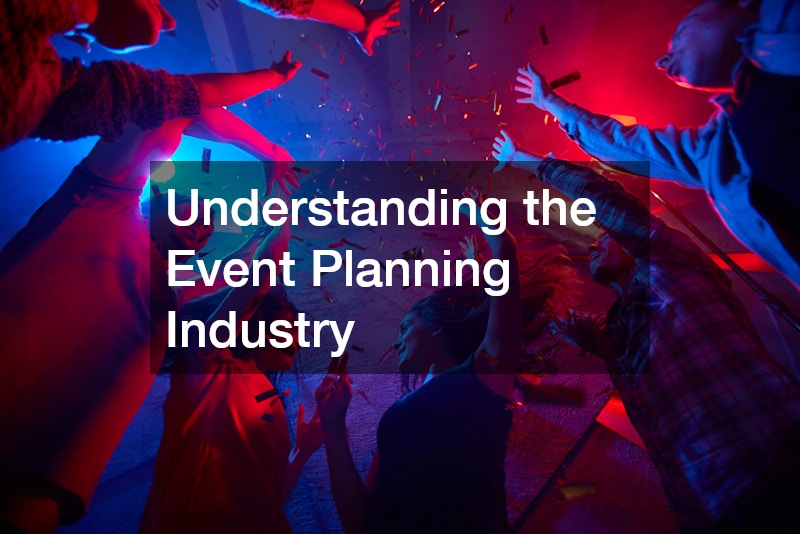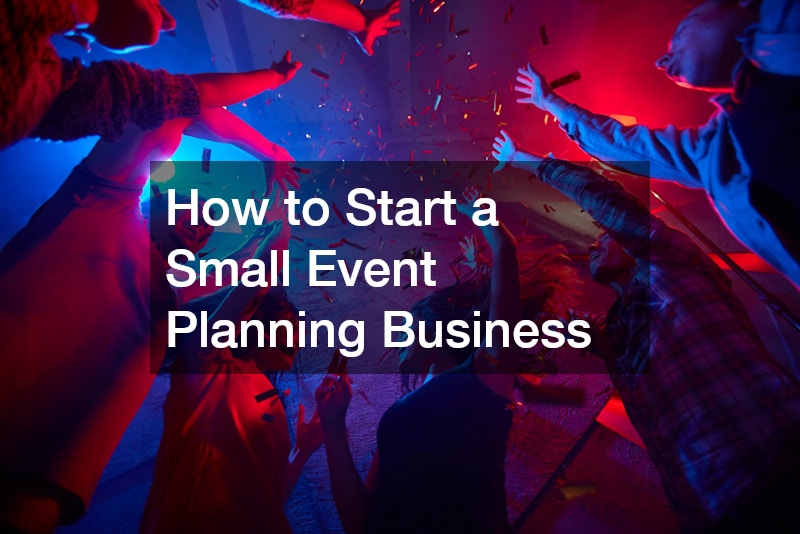Welcome to the comprehensive guide on launching your own small event planning business. Whether you are a natural organizer or someone passionate about creating memorable moments, this article will provide you with the foundational steps, insights, and tips to turn your passion into a thriving business. Starting a small event planning business offers the flexibility to work on a variety of projects, from intimate gatherings to slightly larger private functions, allowing you to scale at your own pace while developing essential industry skills.
The event planning industry is diverse and full of opportunities, particularly for those looking to specialize in small events, which can be more manageable yet equally rewarding. These events can include personal celebrations such as birthdays, engagements, or even anniversaries, where every detail—from the choice of wedding venue to customized décor—makes a significant impact. Working on smaller events gives you the chance to connect closely with clients, creating personalized experiences that make the occasion unforgettable.
This specialization also allows you to build expertise in specific aspects of event planning, such as vendor coordination or budget management, which can lay a strong foundation for future growth. By focusing on small events, you can establish your brand, earn valuable client testimonials, and position yourself as a dedicated and versatile planner in this competitive field.
Understanding the Event Planning Industry
What is Event Planning?
Event planning involves the organization and management of various types of events, from corporate functions to social gatherings. It requires creativity, attention to detail, and the ability to coordinate numerous elements seamlessly. Whether it’s a small event like a birthday party or a larger corporate gala, event planners ensure that every detail aligns with the client’s vision.

The Role of an Event Planner
An event planner acts as a liaison between clients and vendors, handling everything from budgeting and logistics to vendor selection and event execution. Planners must possess strong organizational skills, an eye for design, and excellent communication abilities to ensure a successful event. For a small event planning business, the planner may take on multiple roles, especially in the initial stages, to keep costs down and maintain control over the event’s quality.
Trends in Event Planning
The event planning industry continually evolves, with trends shifting based on cultural influences and technological advancements. Recent trends include a focus on sustainability, personalization, and technology integration, such as virtual events and live streaming. Understanding these trends will help your small event planning business stay relevant and competitive.
Types of Events
Event planning encompasses a broad range of events. Here are some common types:
- Corporate Events: Meetings, conferences, and product launches.
- Social Events: Birthdays, anniversaries, and family reunions.
- Weddings: These can vary from intimate ceremonies to large celebrations often hosted at a wedding venue.
- Fundraisers: Charity events aimed at raising money for causes.
By understanding the different types of events, you can better position your small event planning business to meet client needs.
Challenges in the Industry
The event planning industry is not without its challenges. From tight budgets and changing client demands to unforeseen circumstances like weather issues, event planners must be prepared to adapt quickly. The key is to have contingency plans in place and to remain calm under pressure.
Developing a Business Plan
A solid business plan is crucial for the success of your small event planning business. It serves as a roadmap that outlines your goals, strategies, and financial projections.

Key Components of a Business Plan
- Executive Summary: A brief overview of your business.
- Business Description: Details about what your business will offer.
- Market Analysis: Understanding your competition and target market.
- Marketing Strategy: How you plan to reach your clients.
- Financial Projections: Include an insurance quote to cover potential liabilities.
Market Analysis for Event Planning
Conducting a thorough market analysis is essential. This includes researching the current trends in the event planning industry, identifying your competitors, and understanding your potential clients.
Setting Business Goals
Your business goals should be specific, measurable, achievable, relevant, and time-bound (SMART). These goals will guide your decisions and help you stay focused.
Financial Planning and Budgeting
A crucial part of your business plan is financial planning. Create a budget that outlines your startup costs, including marketing expenses, equipment, and operational costs. Understanding your financial needs will prepare you for initial investments and help in making informed decisions.
Legal Considerations
Ensure that you are aware of the legal requirements for starting a business in your area. This may include obtaining necessary permits and licenses, and considering appropriate insurance quotes for your business operations.
Identifying Your Target Market
Understanding your target market is vital for tailoring your services effectively. Research the demographics of your ideal clients and what types of events they typically host.
Researching Potential Clients
Look for potential clients in your area, especially those who frequently host small events. Developing relationships with local businesses and venues, such as wedding venues, can help generate leads.
Defining Your Niche
Identifying a niche for your small event planning business will help you stand out in a crowded market. Consider specializing in certain types of events, such as corporate functions, weddings, or charity events.
Analyzing Competitors
Study your competitors to see what they offer and how they market themselves. This analysis can provide valuable insights into what works and what doesn’t in your local market.
Client Demographics
Understanding the demographics of your clients will allow you to tailor your marketing efforts and service offerings.
Building Client Profiles
Create detailed profiles of your ideal clients. Consider their preferences, budgets, and the types of events they typically host. This information can guide your marketing strategy and service offerings.
Creating a Brand Identity
Your brand identity will set the tone for your small event planning business.
Choosing a Business Name
Select a name that reflects your services and is easy to remember. Ensure that the name is not already in use and is available as a domain for your website.
Designing a Logo
A professional logo is essential for branding. It should be visually appealing and representative of your business values.
Building Brand Values
Define the core values of your business. What do you stand for? This will help guide your business practices and resonate with potential clients.
Creating a Website
In today’s digital age, having a professional website is crucial. Your website should showcase your services, include a portfolio, and provide contact information.
Maintaining Consistent Branding
Consistency is key in branding. Ensure that your branding elements—colors, fonts, and messaging—are uniform across all platforms.
Setting Up Your Business Operations

Choosing a Business Structure
Decide on a business structure that fits your needs—sole proprietorship, partnership, LLC, etc. Each structure has its own legal and tax implications, so choose wisely.
Registering Your Business
Register your business with the appropriate government authorities to ensure legality and protection of your business name.
Setting Up an Office
Having a dedicated workspace can increase your productivity. Whether it’s a home office or a rented space, ensure it’s equipped for your business needs.
Investing in Necessary Equipment
Invest in essential equipment such as computers, printers, and event planning software. The right tools can streamline your operations and enhance your efficiency.
Utilizing Event Planning Software
Consider using event planning software to help manage your projects, budgets, and timelines. This can save you time and improve your overall organization.
Marketing Your Event Planning Business
Developing a Marketing Strategy
Creating the best digital marketing strategy for your business will help you reach your target audience effectively. Include both online and offline tactics to maximize your reach.
Social Media Marketing
Leverage social media platforms to showcase your events and connect with potential clients. Share photos, client testimonials, and behind-the-scenes content to engage your audience.
Networking and Partnerships
Build relationships with other businesses in the industry, such as catering companies and party bus rental services. Networking can lead to referrals and collaborative opportunities.
Using Paid Advertising
Consider using paid advertising to increase your visibility. Target specific demographics to reach potential clients who may be interested in your services.
Building an Online Portfolio
An online portfolio showcasing your past events is a powerful marketing tool. Include high-quality images and detailed descriptions of the events you have planned.
Building a Portfolio and Gaining Experience
Starting with smaller events can help you build your portfolio and gain valuable experience.
Creating Mock Events
Organize mock events to showcase your planning skills. These can be excellent opportunities to invite potential clients and vendors.
Documenting Past Events
Keep a detailed record of all past events, including client feedback, vendor contacts, and logistical details. This documentation can be invaluable for future planning.
Client Testimonials
Request testimonials from satisfied clients. Positive reviews can enhance your credibility and attract new clients.
Collaborating with Vendors
Establish relationships with vendors such as a catering company and rental services. This can lead to better deals and enhance the quality of your events.
Volunteering for Community Events
Volunteering for community events is a great way to gain experience and exposure. It can also help you build relationships with other event planners and vendors.
Managing Your Finances

Pricing Your Services
Set competitive pricing for your services based on market research and your target audience. Consider offering tiered pricing packages to accommodate different budgets.
Accounting for Your Business
Keeping accurate financial records is essential. Use accounting software to track expenses, income, and invoices. Some business owners even consider looking into personal loans to offset some of the expenses that come with starting a company.
Understanding Taxes
Familiarize yourself with the tax obligations for your business. Consider consulting with a tax professional to ensure compliance.
Creating Financial Reports
Regular financial reporting will help you track your business performance and identify areas for improvement.
Managing Cash Flow
Keep a close eye on your cash flow to ensure you can meet your business obligations.
Growing Your Business
Expanding Your Services
As your business grows, consider expanding your service offerings. This could include event security or specialty rentals, such as party tent rental services.
Hiring Staff
If your small event planning business becomes too large for you to manage alone, consider hiring staff. This can help you take on more clients and improve service quality.
Improving Client Relationships
Fostering strong relationships with clients is key to repeat business. Communicate regularly and show appreciation for their loyalty.
Investing in Professional Development
Continuously seek opportunities for professional development to enhance your skills and stay updated on industry trends.
Exploring New Markets
Look for opportunities in new markets, such as corporate events, luxury portable restroom offerings, or destination weddings, to broaden your client base.
Ensuring Client Satisfaction
Always prioritize client satisfaction.
Communication Techniques
Effective communication is crucial for understanding client needs and managing expectations.
Gathering Client Feedback
After each event, gather feedback from your clients to improve your services continually.
Managing Client Expectations
Be clear about what clients can expect from your services. Setting realistic expectations can prevent misunderstandings and dissatisfaction.
Resolving Conflicts
Inevitably, conflicts may arise. Address issues promptly and professionally to maintain client trust and loyalty.
Delivering Exceptional Service
Delivering outstanding service will set your business apart from the competition. Strive to exceed client expectations at every opportunity.
Embarking on the journey of starting a small event planning business is both exciting and challenging. By leveraging the knowledge from this guide, you will be well-prepared to create a successful and adaptable enterprise that brings joy and unforgettable experiences to your clients. Building a small event planning business allows you to help clients celebrate some of life’s most memorable moments, from intimate weddings at a carefully chosen wedding venue to lively birthday parties complete with custom decorations and activities. As you navigate this industry, you’ll find that each event offers unique opportunities to expand your skills, creativity, and client base.
Remember, the power of continued learning and networking within the industry is invaluable as you grow and refine your business. Keeping up with new event trends, from eco-friendly decor to high-tech audio-visual setups, will allow you to offer fresh ideas that appeal to modern clients. Building strong partnerships with vendors such as catering companies, party tent rental services, and even outdoor furniture providers will make your small event planning business more versatile and resourceful. With dedication, passion, and a commitment to client satisfaction, your business will not only survive but thrive, establishing itself as a trusted name in the dynamic world of event planning.



